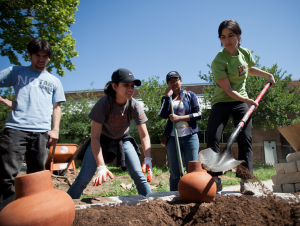 In Wisconsin, favorite veggies tend to ripen in summer. One of the biggest issues of maintaining a school garden is that it often goes untended during the summer, wasting the great efforts of spring and becoming a mess for fall growing. Here are four ideas to keep your school garden growing. View Resource »
In Wisconsin, favorite veggies tend to ripen in summer. One of the biggest issues of maintaining a school garden is that it often goes untended during the summer, wasting the great efforts of spring and becoming a mess for fall growing. Here are four ideas to keep your school garden growing. View Resource »
Learn How To Compost
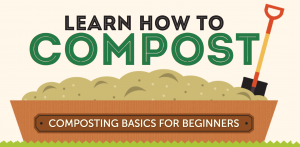 Learn how to compost with this easy-to-understand guide! Perfect for beginners, this website breaks down the science and benefits of composting along with a step-by-step guide on how to set up your own composting system. View Resource »
Learn how to compost with this easy-to-understand guide! Perfect for beginners, this website breaks down the science and benefits of composting along with a step-by-step guide on how to set up your own composting system. View Resource »
Reducing Lead Hazard in Gardens and Play Areas
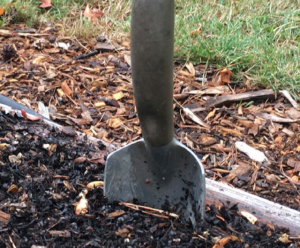 Lead is the most common metal contaminant in urban areas. Lead exists naturally in soils at concentrations of 10 to 50 parts per million (ppm). Higher concentrations may indicate lead contamination. This document from Oregon State University Extension will walk you through ways to limit risks of lead contamination in outdoor learning spaces. View Resource »
Lead is the most common metal contaminant in urban areas. Lead exists naturally in soils at concentrations of 10 to 50 parts per million (ppm). Higher concentrations may indicate lead contamination. This document from Oregon State University Extension will walk you through ways to limit risks of lead contamination in outdoor learning spaces. View Resource »
Garden to Give: Lesson Plan
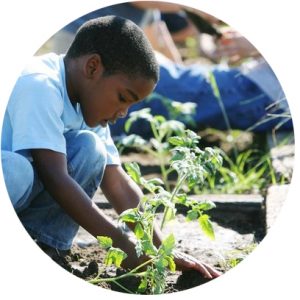 Growing your own fruits and vegetables is a great way to add fresh, local produce to your diet. Planting just a little bit more than you need also offers opportunities for you to help address hunger issues and to make a difference in your community. From KidsGardening.org. View Resource »
Growing your own fruits and vegetables is a great way to add fresh, local produce to your diet. Planting just a little bit more than you need also offers opportunities for you to help address hunger issues and to make a difference in your community. From KidsGardening.org. View Resource »
Homegrown: School Gardens in Wisconsin
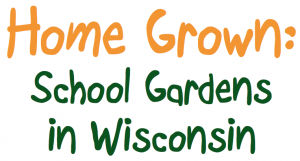 From the Department of Public Instruction. Children are more likely to absorb and integrate food knowledge if they have real-life contact with agriculture. School gardens offer a wonderful medium for students to get their hands dirty and learn about food, agriculture, and nutrition. This document profiles schools and walks through best practices to create a productive and lasting garden-based education program. View Resource »
From the Department of Public Instruction. Children are more likely to absorb and integrate food knowledge if they have real-life contact with agriculture. School gardens offer a wonderful medium for students to get their hands dirty and learn about food, agriculture, and nutrition. This document profiles schools and walks through best practices to create a productive and lasting garden-based education program. View Resource »
